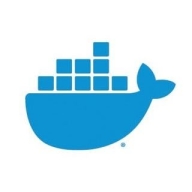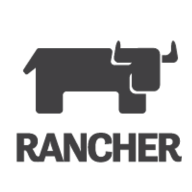

Rancher Labs and Docker compete in the container management and deployment category. Based on feature availability and deployment flexibility, Docker often has the upper hand due to its strong security and portability features, while Rancher Labs specializes in Kubernetes management and storage solutions.
Features: Rancher Labs provides flexibility with strong integration, resource management, and excellent persistent storage capabilities for Kubernetes. It offers open-source options and excels in storage management. Docker is favored for its security, detailed documentation, and ease of use, with superior containerization and portability features for efficient deployments across environments.
Room for Improvement: Rancher Labs could enhance stability, advanced integrations, and support for complex multi-cloud deployments. Improving security features and observability tools is suggested. Docker could improve in stability and documentation, requiring more intuitive management interfaces and enhanced security features. Better integrated monitoring and improved handling of GPU resources for machine learning applications are needed.
Ease of Deployment and Customer Service: Rancher Labs is typically implemented on-premises with reliable support via open-source communities. Docker deploys easily across public, private, and hybrid clouds with praised responsive technical support. Docker's flexibility in cloud adaptability sets it apart, offering a more versatile deployment experience.
Pricing and ROI: Rancher Labs is open-source without licensing fees, providing significant ROI through cost savings, though support fees can be substantial. Docker, largely open-source, offers variable licensing costs based on user needs, facilitating cost-effective scalability. Both offer substantial returns, with Rancher providing comprehensive Kubernetes management without additional expenses unless premium support is selected.


Docker is a versatile container platform used for running and deploying applications in isolated environments, ensuring consistency across development, testing, and production.
Docker offers solutions for containerizing applications, automating deployments, and managing infrastructure through its robust platform. It supports CI/CD workflows, provides a development platform for container management, and simplifies the setup by using streamlined tools. Organizations leverage Docker for building microservices, running UI applications, deploying web services, and setting up secure environments. It also facilitates managing containers via Kubernetes and creating development stacks for enhanced productivity.
What are Docker's key features?Industries implement Docker for CI/CD pipelines, scaling services, and improving resource utilization. Tech companies use Docker for building and deploying their software in isolated environments. Finance and healthcare sectors deploy applications securely, ensuring compliance with regulatory standards. Educational institutions set up consistent development environments for coding labs and training students in advanced technologies.
Rancher Labs build innovative, open source software that makes it easy to deploy and manage containers in production on any infrastructure. We enable organizations to accelerate all aspects of their software development pipeline, from writing and testing code to running complex microservices-based applications.
Rancher, our flagship container management platform, allows users to easily manage all aspects of running containers in development and production environments, on any infrastructure. With well over four million downloads, Rancher has quickly become the tools of choice for teams serious about running containers in production. This includes large enterprises such as Sony, IBM, Tyco, Align Technologies and more.
We monitor all Container Management reviews to prevent fraudulent reviews and keep review quality high. We do not post reviews by company employees or direct competitors. We validate each review for authenticity via cross-reference with LinkedIn, and personal follow-up with the reviewer when necessary.